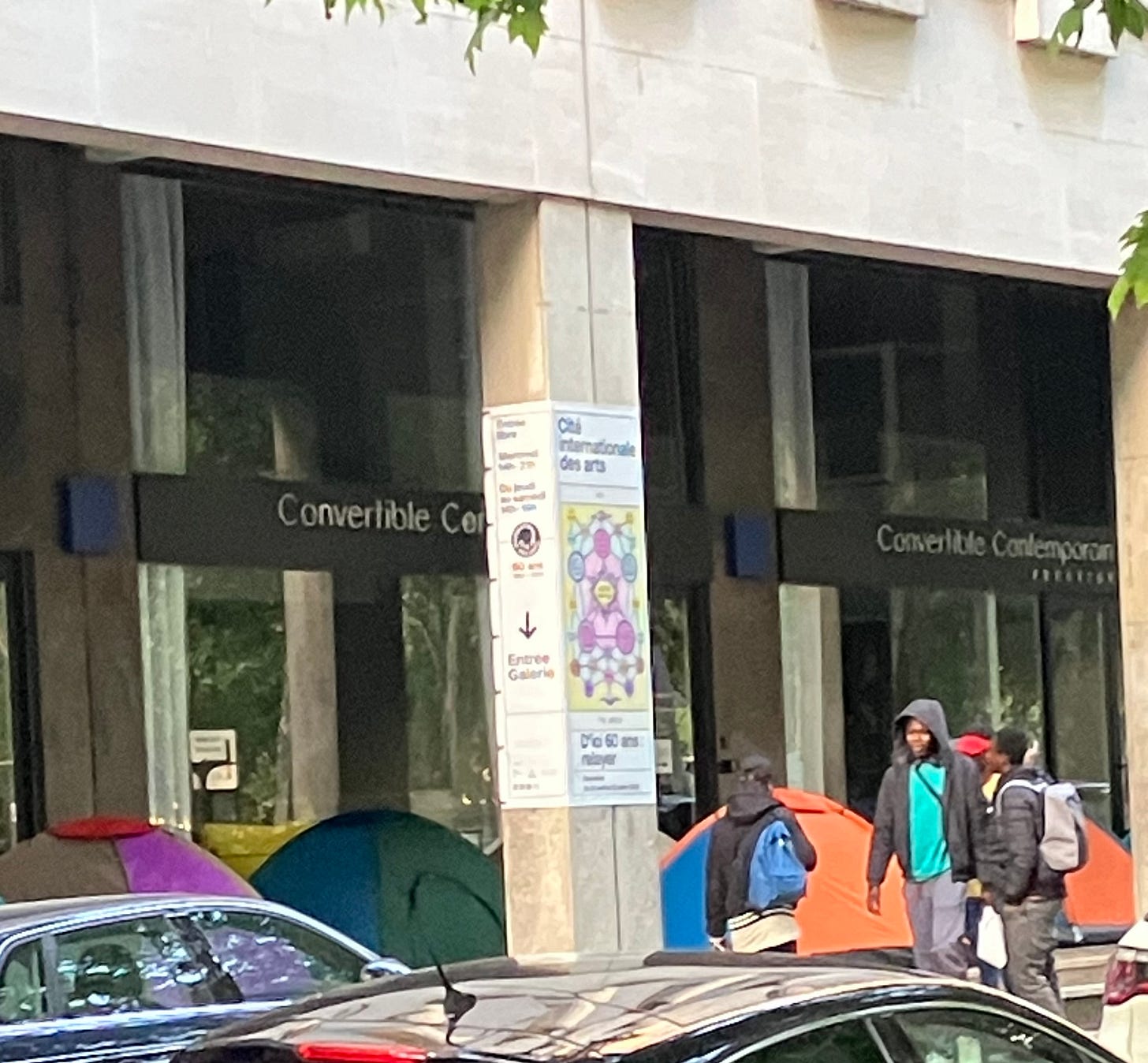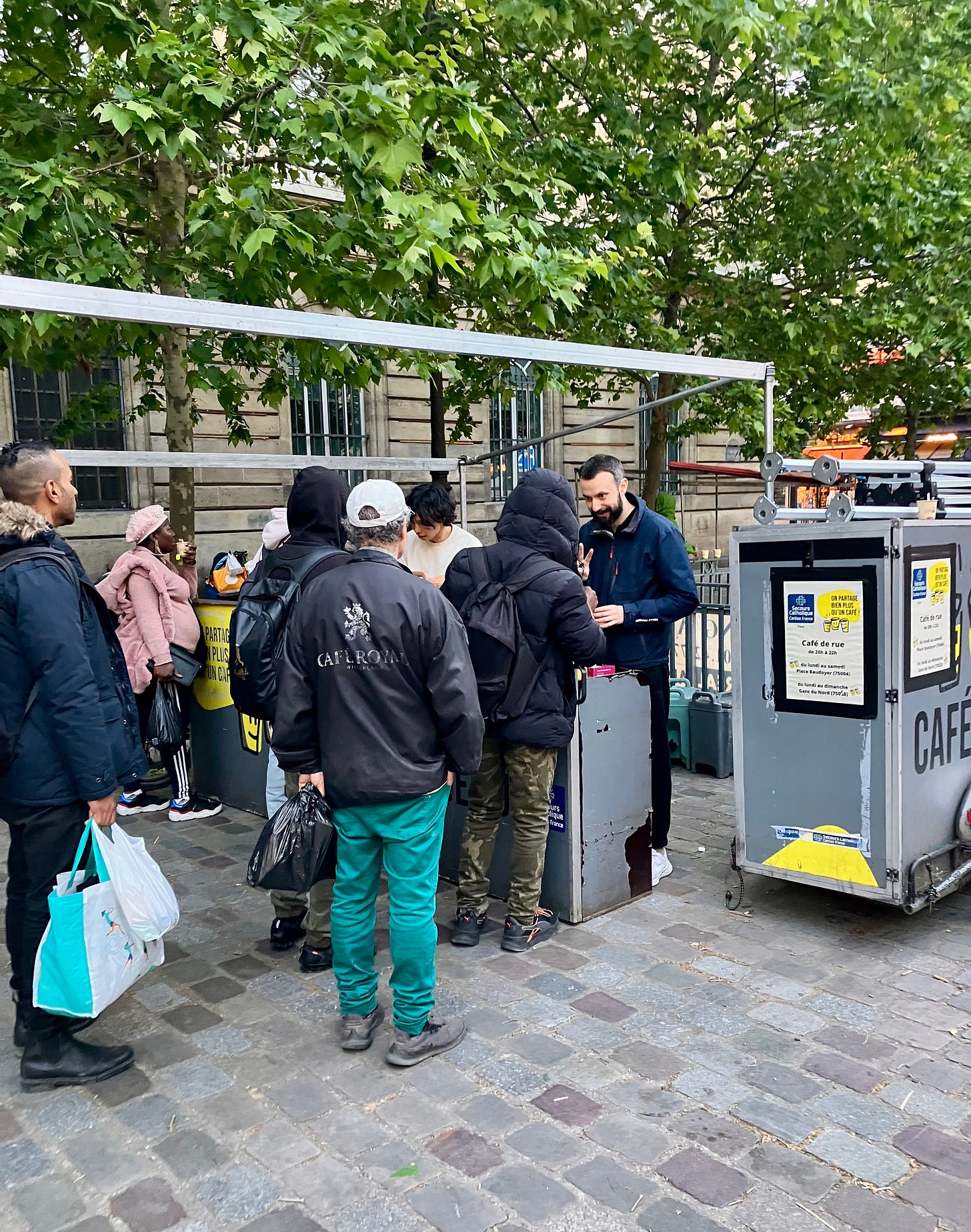Fraternité in Action
According to a certain (immigrant) American billionaire oligarch, empathy is a sloppy weakness, fatal to any country that aspires to world dominance. (A few days ago, the U.S. President’s glory-tour of Alligator Alcatraz showed that these two feuding guys still have sadism in common.) Either France missed the memo, or she is not into world dominance—or, she long since embraced a social contract emphatically based on empathy. ‘Liberté, fraternité, egalité’ is the national motto, no less. Note how the empathetic quality of fraternité, meaning brotherhood (sisterhood too, bien sur) provides the glue in the middle. But maybe today, more than two centuries after the Revolution, this is only lip service?
Most readers here know of France’s standing as one of the West’s most generous welfare states—the parental leave, after-school programs, excellent universal public health, free higher ed, etc etc. Some may look at the national deficit (about to be dwarfed by that of the U.S.) and ask whether it all costs too much. But those benefits are all expressed as numbers and laws—ultimately due to empathy at the voting box, granted, but they are not the sort of icky spontaneous person-to person gestures that our oligarch so despises. To see everyday street-level empathy, here are a few photos of fraternité in action.
First, the tents. They are small but neat. And everywhere, because in France, too, homelessness is a big, gnarly problem. The tents are not bulldozed away, but allowed to pitch on public and private property, even in ‘tourist zones.’ This row stands in front of an upscale furniture showroom. Imagine. First things first, including dignity and respect for other human beings.
Next , the sharing of ‘un p’tit café.’ What, not a full meal? Well, there are many places where meals are served, no questions asked, but it’s the little cup of strong coffee that holds the Gallic culture together, and creates one-on-one relationships, however fleeting. (Respect, again. A major component of both empathy and fraternité, I’m noting on my walks.) And so, these volunteer-organized, outdoor coffee stands have sprung up around town. Judging by the lines, they are appreciated. The ‘ptit’ must be brewed to perfection!
Empathy. Fraternité. C’est la vie.




Excellent sidelight, thanks, SB. Or, light full on. Empathy (and lack thereof) is a fascinating subject, from the Milgram obedience experiments (1960s) to the bizarre refusal of many to acknowledge starvation in Gaza. Of course, too much empathy can cause harm as well--a crossing of boundaries in relationships. But not much of a problem to worry about these days. Fun fact: it's said a person's degree of innate empathy is proportional to how likely they are to yawn when they see someone else yawning. Interesting test. Meanwhile, pass the coffee!
I did enjoy your article. Just wanted to add something. During the Nuremberg trials, the United States sent a psychologist Gustave Gilbert there "to work as a morale officer and translator. Nuremberg was a high-stakes affair, and the Allied powers wanted the trial to proceed in an orderly and dignified manner. Gilbert's job was to keep the prisoners — Hitler's leading henchmen — in a reasonably calm, rational state."
While that was his original assignment, I believe he was later given the responsibility of learning more about them, and what motivated them. (I looked this up months ago, and can't find the same link.) But, I know he gave them psychological tests, and interviewed them. He ended up writing The Nuremberg Diary. https://archive.org/details/the-nuremberg-diary-1971-gustave-gilbert
What he learned was that the one characteristic they all shared was a lack of empathy, which he defined as "a genuine incapacity to feel with their fellow man." He wrote: "Evil, I think, is the absence of empathy.” Unfortunately, Trump has the same characteristic.